The Bacalar spearheads a new era at Bentley, one in which it hopes its coachbuilding division, Mulliner, will lead a personalisation charge to give customers ever-more exclusive cars (if the idea of ‘more exclusivity’ doesn’t sound like a paradox too far).
Mulliner claims to be the world’s oldest coachbuilder, starting out around 500 years ago when it was a saddle maker. Its links with Bentley date back to 1923, when it exhibited a two-seat 3 Litre Bentley at the Olympia Show in London. But the bond grew stronger from 1952, when Mulliner built the R-Type Continental, before the coachbuilders officially became part of Bentley in 1959.
Now Mulliner has three arms within Bentley: Classic (to recreate icons such as the Blower), Collections (where customers can specify unique personalisation options) and Coachbuilt (where Mulliner will build entirely different versions of series production vehicles). The Bacalar is from the latter.
Mulliner sees itself as more than a simple offshoot of Bentley. Instead, it believes it can drive development at the company, almost like a skunkworks department where new ideas are forged and tested quickly. As Omar Sheikh, project leader at Mulliner, says: “The advantage with coachbuilding is that we can turn around a project in a relatively short period of time. We can bring in new innovations and technology and trial them out in a very short period of time. If they’re successful, then they can be looked to be brought into future cars within Bentley.”
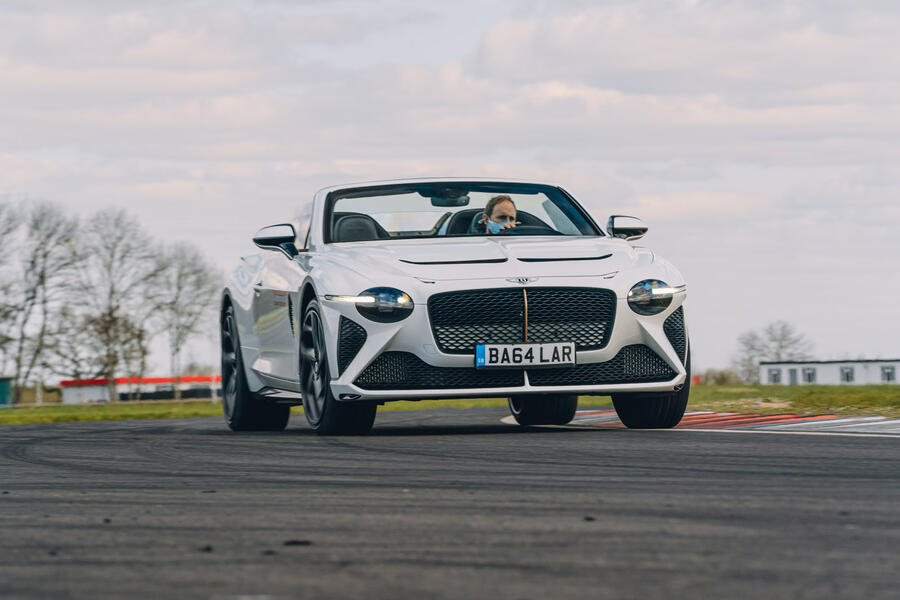
It’s a relationship that cuts both ways. “If there is a future technology that we know is being brought through in four or five years’ time, then we can bring that in on a smaller scale, at a higher unit cost maybe because it’s low volume,” adds Sheikh. “But we can showcase these features first on coachbuilding to prove them, trial them and see what the response is.”
Take the rice husk used in the Bacalar’s paint. Sustainability is a hot topic at the moment and Bentley isn’t immune to it – “With younger customers coming into the Bentley brand, more sustainability is a big theme for us” – so the otherwise wasted rice husk is an effective solution for all concerned. It’s unlikely to make it to mass production at the moment, but that’s not to say it can’t in the future. Its use on the Bacalar gives Bentley the “possibility to investigate whether these features can be made more efficient, to then go down our main production line”.
So what does the future hold? In short, more from Mulliner. Performance is something they’re looking at but Mulliner hasn’t yet had the ability to move into it. “With certifications and emissions, power increases are very difficult and costly,” explains Sheikh.
Restorations are on the radar, but for now you can’t take your S1 in to have it restored; the recreation Blower is in effect a ground-up new car, not a rebuild. But others within the Volkswagen Group do restorations – Porsche is one – so there’s no reason to suspect it won’t happen here. Sheikh is certainly keen on the principle.
Even technology is something that Mulliner wants to look at. “The cars are getting more and more technologically advanced,” says Sheikh. “How can we bring personalisation into that world of technology, because it’s very expensive. But if you look at your infotainment screen, your combis, these are areas we’d like to get into to customise. But they’re very costly, so that has to be in partnership with our main Bentley engineering team. It’s a much bigger project.”
But Sheikh gives the impression that the size of the project doesn’t concern Mulliner. The firm is not wanting for lack of ambition. Nor, given the way the Bacalar and Blowers were snapped up, is it wanting for customers.
Here's one Mulliner made earlier
WO Bentley’s old company car is perhaps the ultimate in automotive politeness: as you open the passenger door, you have to step aside and let the driver in first. Not because of some Nascar-like welded driver’s door, but because the gearlever is on the right of the driver’s seat so it’s a lot easier to enter from the left.
Pleasantries done, you’re then sitting on the very bench on which WO once perched. This Mulliner-bodied 8 Litre was his daily driver, using it for around a year before the company hit the buffers in 1931 and got sold to Rolls-Royce. Only 100 examples were ever made but it was proudly proclaimed to be capable of 100mph, no matter what sort of bodywork was fitted. This very magazine hit a 0.5- mile terminal top speed of 101.12mph in a similar car back in December 1930.
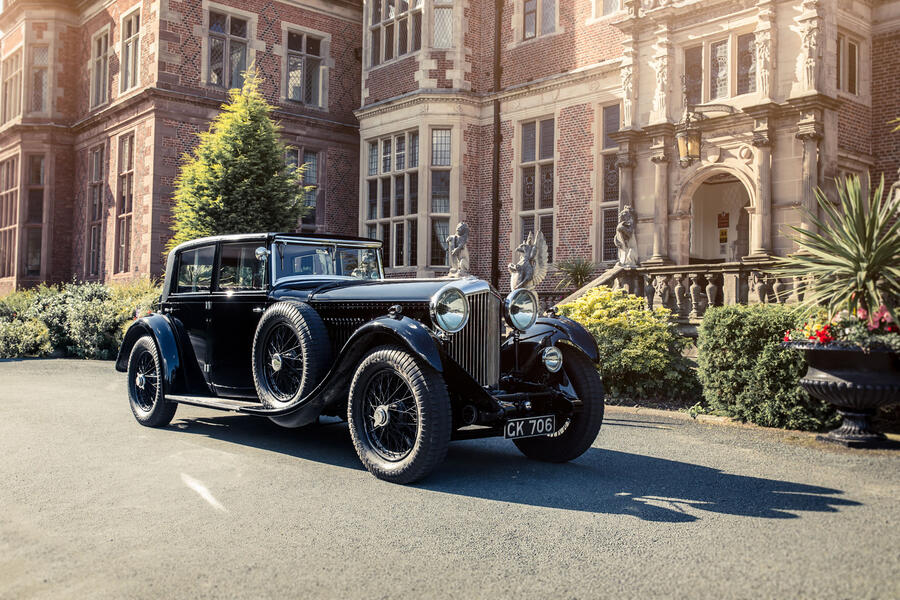
It’s a push-button start and it turns over and catches quickly. WO built it as a “dead-silent 100mph car”, but no modern EVs are going to be losing any sleep over the NVH levels here. The straight six sounds glorious and mechanical, but smooth it is not.
My driver for the trip is Keith Downey and he engages first with a quick dip of the clutch. This is the easiest gearchange he will make for the next 20 minutes, as every other one will have to be double de-clutched – the 8 Litre doesn’t have synchro either up or down.
What is staggering is how much concentration is needed. I’ve driven plenty of old machinery before, but not of this vintage, and the amount of quirks and tricks that Keith must overcome and employ respectively are enough to make your brain ache. It’s easy to forget how simple and effortless modern cars are. If touchscreens had been around in 1930, you wouldn’t have had the spare mental capacity to operate one…
What’s surprising is how well it rides. Leaf spring suspension all round absorbs bumps better than you’d expect, and there’s a solidity to the car that’s reassuring.
That feeling of heft is matched by the engine. At the time, the 8 Litre was the largest-engined car on sale in the UK, with around 200bhp from its 7983cc, but it’s the torque that’s more impressive now. Third gear can easily haul the car from a virtual standstill and fourth is good for most driving. No bad thing, given the skill required to work the gearbox.
The smells and the atmosphere are lovely. It’s a multi-sensory pleasure, with what looks like the sort of driving experience – given how much Keith is hauling on the wheel to get it around corners – that rewards in spades.
But my abiding memory will be of the little details. The stunning etched ‘Carl Zeiss’ font on the headlights, or the rope pull to raise and lower the rear blind. Even the little catch on the windows that you have to unwind to slide them open. Simpler times, simpler pleasures.
READ MORE
First drive: 2021 Bentley Mulliner Bacalar prototype review
Mulliner expansion continues with horse-themed Bentley Continental GT
Bentley's coachbuilding arm Mulliner to ramp up with ultra-exclusive model

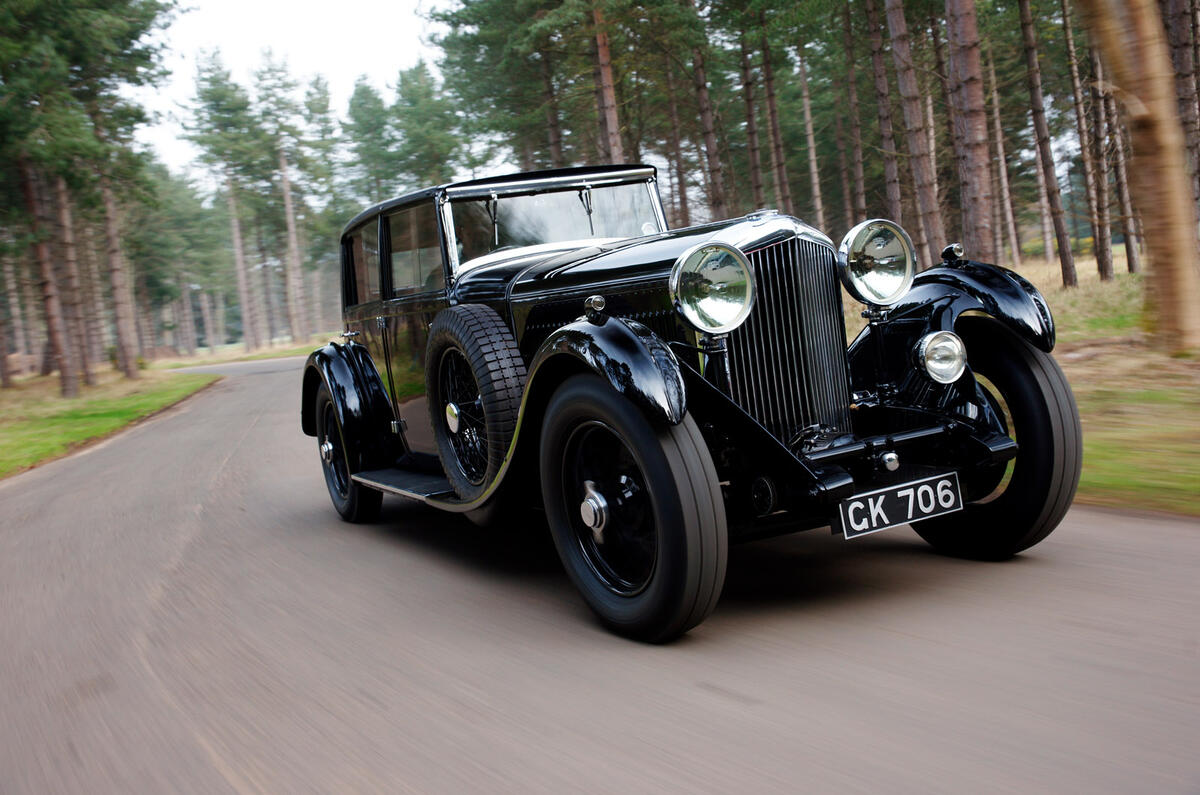
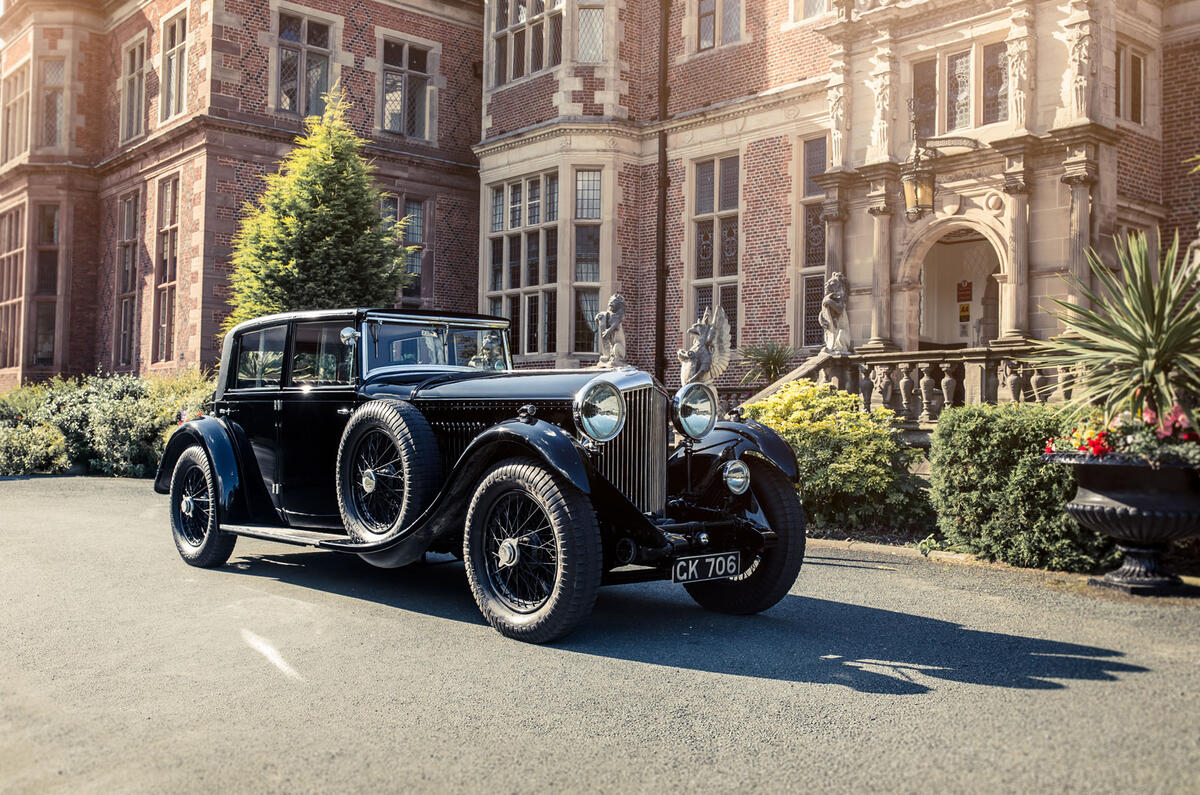
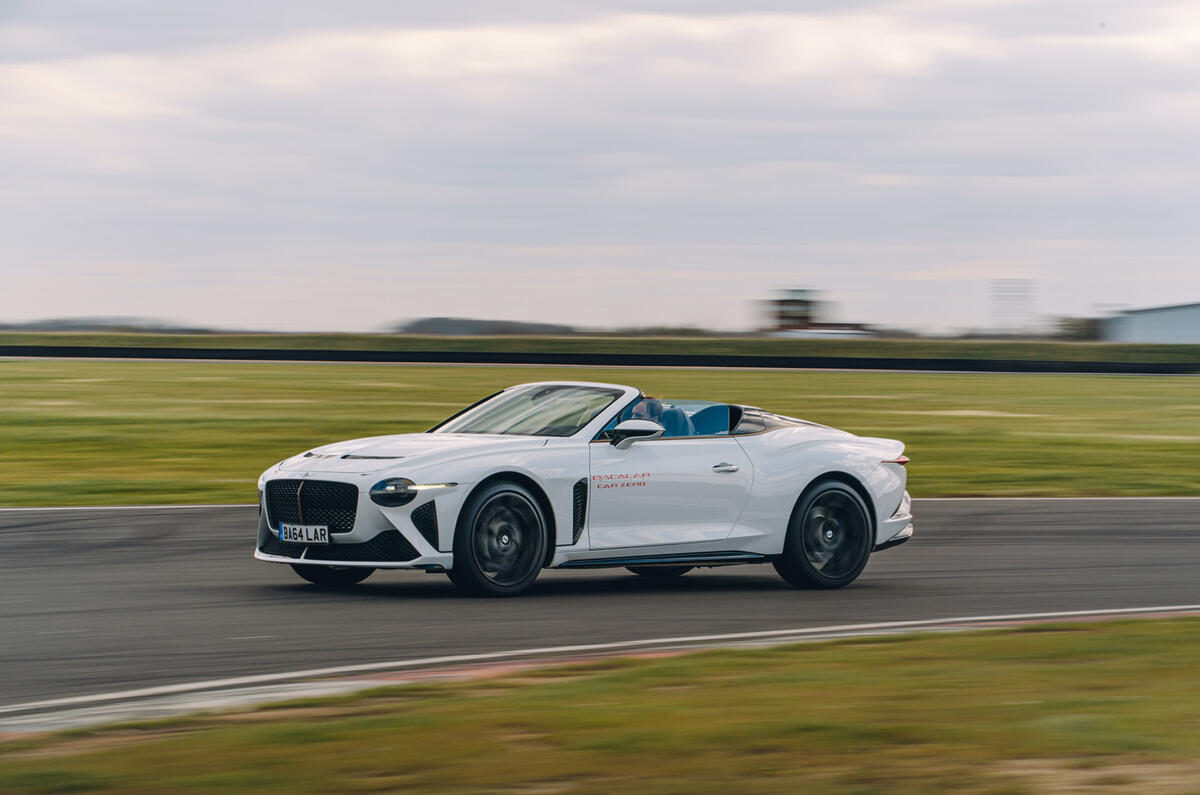
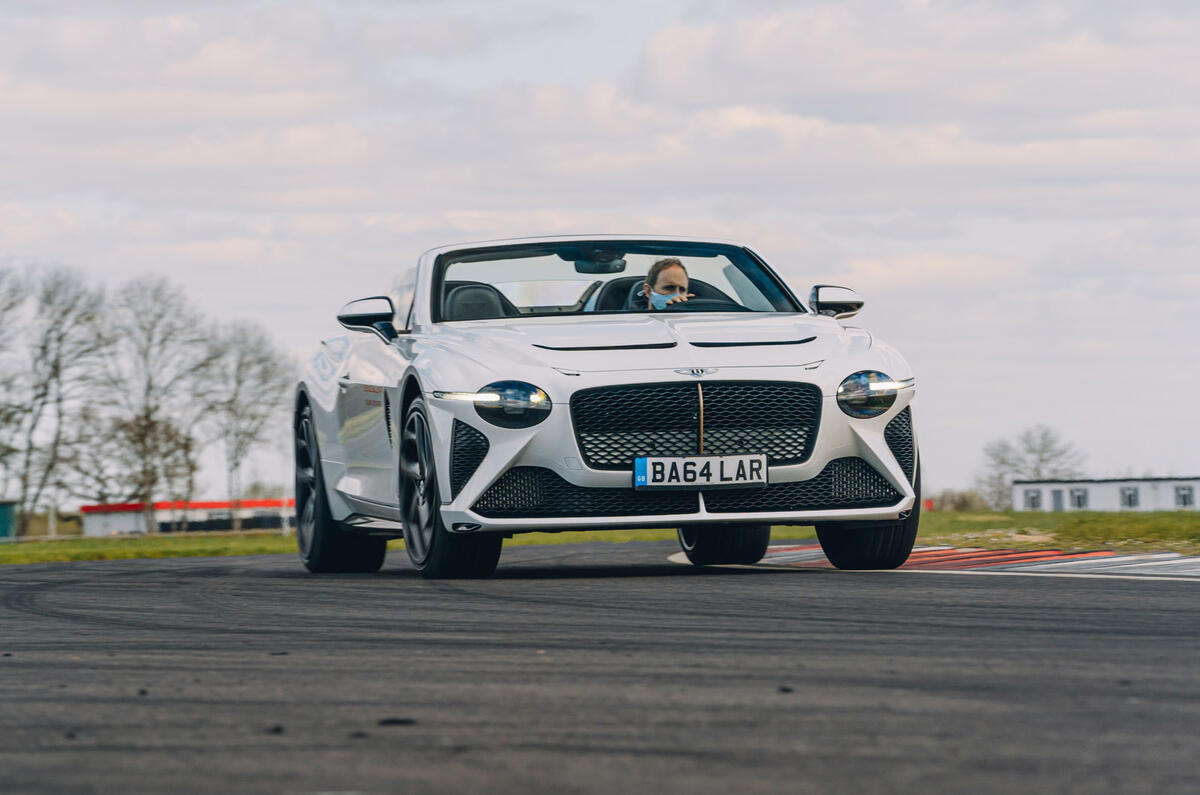
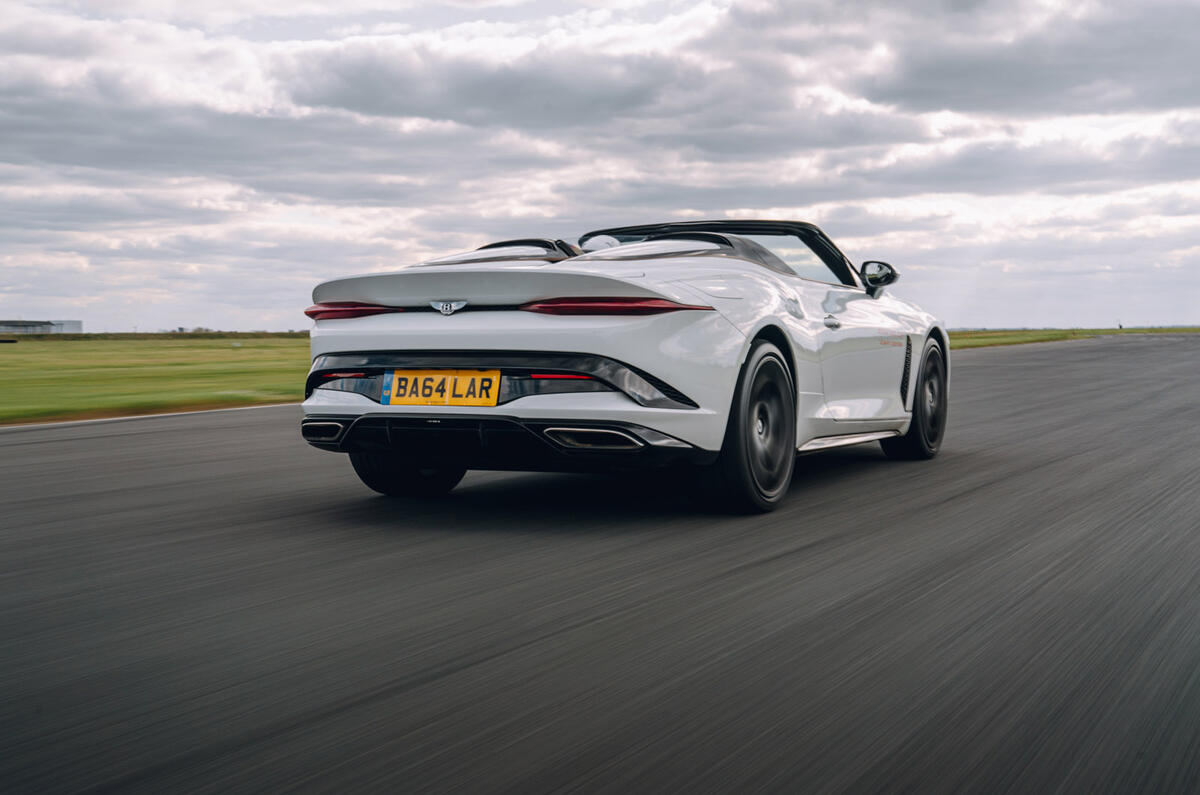
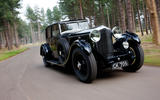

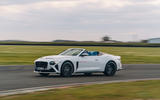




Join the debate
Add your comment
BIMFAN no you are wrong, it has always been required, and has been a huge business for many companies for years, ferrari, and Bentley not forgetting RR, has been coachbuilding for decades and still do, there are people out there that want cars built to their specs, dont forget the Bentley Bentayga was NOT the first Bentley SUV, not by decades, there were a number made by Bentley for one customer, who we all know, and has one of if not the biggest car collection in the world, including a significant number of bespoke products, built to his orders, I must admit that the original Bentley SUV, albeit built on a Range Rover Chassis, is a stunning looking thing, and for its era, remains one of the best looking SUV cars of that time.
Coachbuilding hasn't really been required since the onset of monocoque unibody construction, hence it needs another purpose for now (i.e. customisation) in order to maintain the name.
But perhaps Mulliner coachbuilding will finally come back into the mainstream, when Bentley launch its future EV models on elecric skateboard chassis.
Who wouldn't want something more unique than the mainstream Bentley models you see on every street nowadays?
I always imagined that coach building was one of these businesses that quietly went about its business with a full order book, giving its customers what they wanted, I didn't think that, because there customers were people with no financial problems, there'd be a downturn in this business.